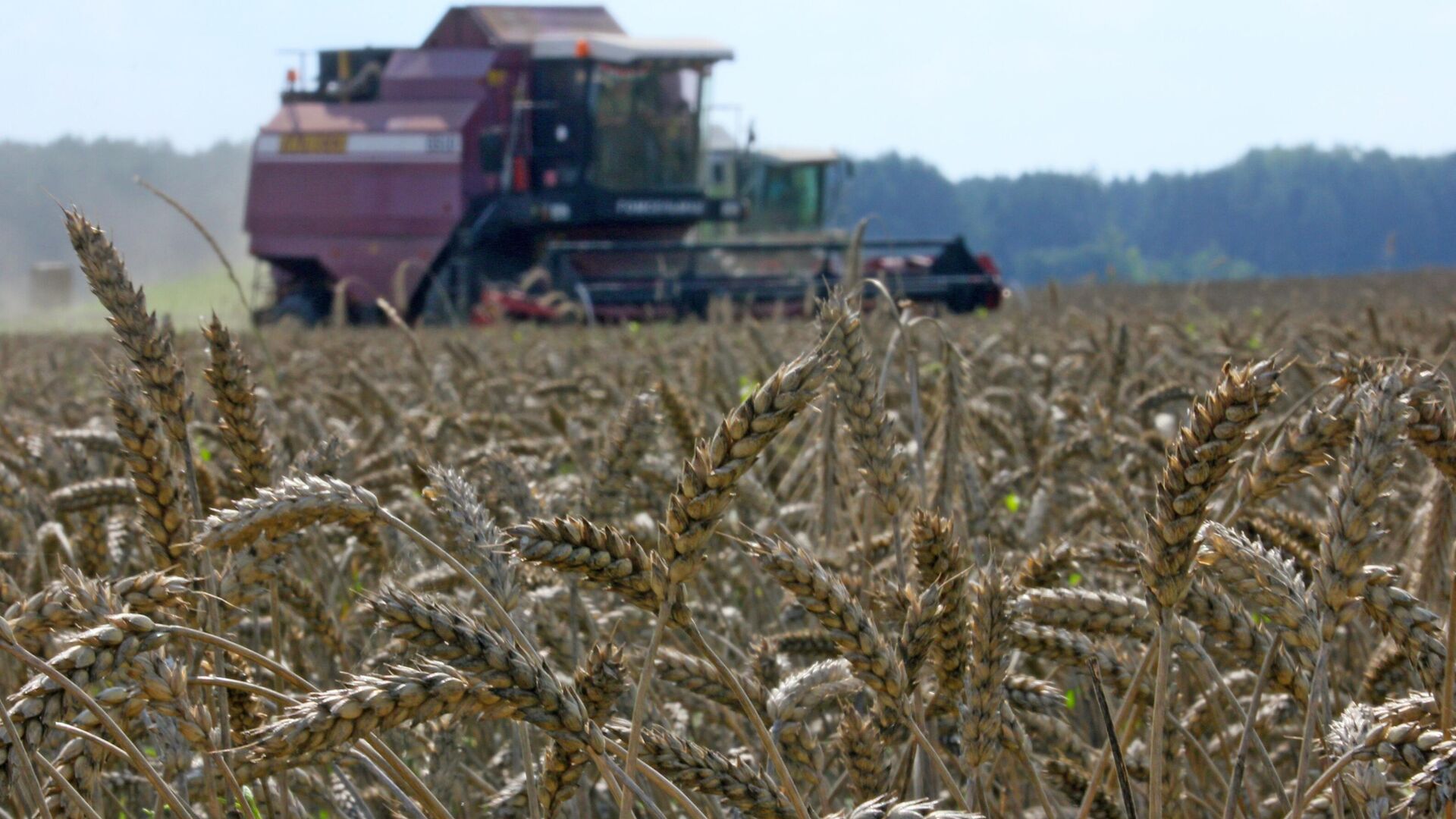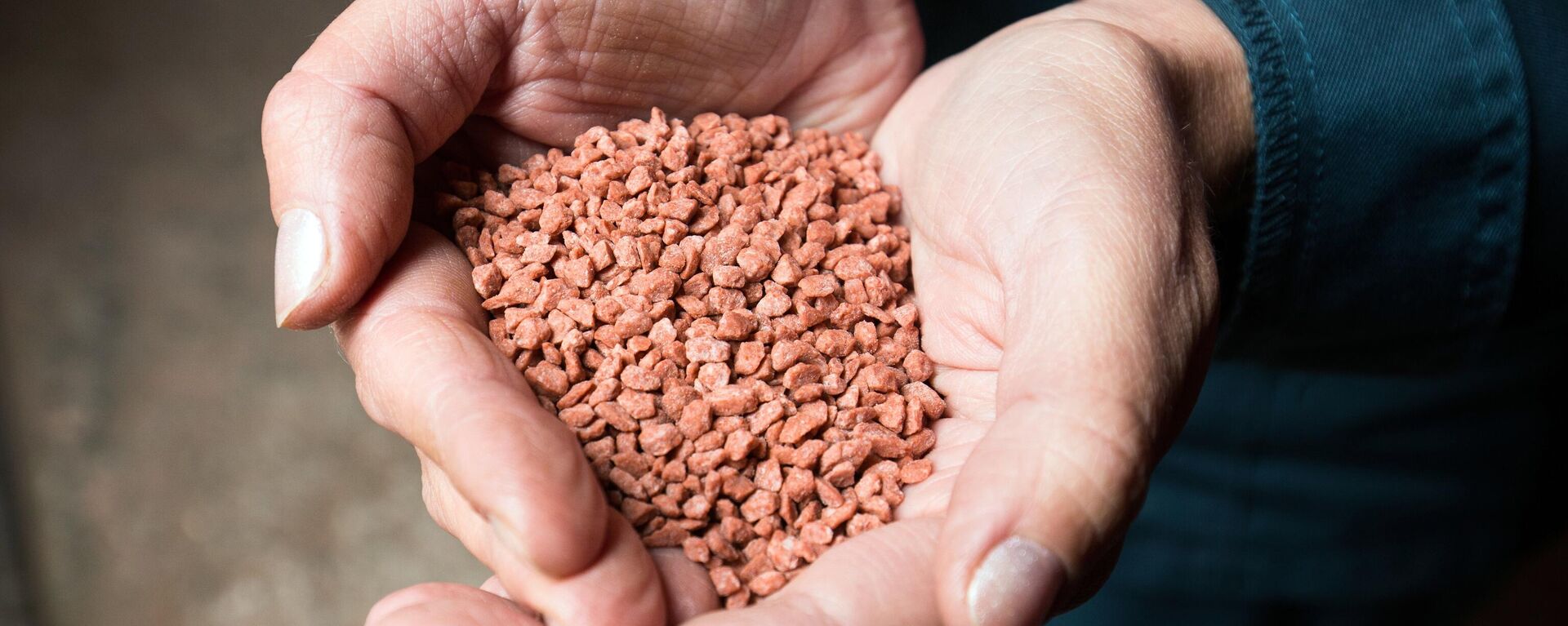https://sputnikglobe.com/20220808/russias-potential-cut-in-grain-exports-may-hurt-africa-mideast-not-europe-expert-says-1099384432.html
Russia's Potential Cut in Grain Exports Won't Lead to Major Problems in Europe, Expert Says
Russia's Potential Cut in Grain Exports Won't Lead to Major Problems in Europe, Expert Says
Sputnik International
BRUSSELS (Sputnik) - A potential reduction in Russian grain exports may become an issue for import-reliant African and the Middle Eastern countries but not for... 08.08.2022, Sputnik International
2022-08-08T11:47+0000
2022-08-08T11:47+0000
2022-11-23T11:36+0000
russia
ukraine
grain
middle east
opinion
analysis
africa
https://cdn1.img.sputnikglobe.com/img/07e5/0a/07/1089742425_0:0:3173:1785_1920x0_80_0_0_b5c41b97ae17ca6be77ff4af97db0963.jpg
Russian Agriculture Minister Dmitry Patrushev said Friday that the country might be forced to take some 50 million tonnes of grain off the market after this year’s crops fell short of the 130 million tonne target.The only problem facing Europe, Fichefet said further, is a low nitrogen content of the wheat crop in many places, which means it will not be used in the baking industry but only for livestock feed.Russia was the world's top exporter of nitrogen fertilizers in 2021, the most valued variety, according to the UN Food and Agriculture Organization (FAO). Many European and Central Asian countries rely on Russia for over 50% of their fertilizer supply, and shortages are expected to extend to next year.Russia is also the world's largest exporter of wheat, with Ukraine in fifth place. Together, the two countries account for more than one-third of global cereal exports and a half of the world's sunflower oil export market.FAO predicted in March that supply disruptions in Russia and Ukraine could affect some 50 countries that depend on the two for 30% or more of their wheat supply. Many of them are low-income countries in northern Africa, Asia and the Near East.Fichefet said it was "not so much a price problem, as a delivery issue" because price fluctuations had not been more than 20% up or down since the start of the Ukrainian conflict. A UN-brokered deal among Russia, Ukraine and Turkey has at least temporarily stabilized the prices. That may change if Russia slashes grain exports, she predicted.The West has repeatedly accused Russia of undermining global food security. Moscow argues that Western sanctions on financial transactions and maritime transportation have disrupted global food supply chains, curbing the access of Russian food products and fertilizers to markets. The deal, agreed in Istanbul in July, seeks to facilitate the transport of grain and foodstuffs from Ukrainian ports, while simultaneously addressing limits on Russian exports.
https://sputnikglobe.com/20220603/anti-russia-sanctions-left-africa-without-access-to-grain-and-fertilizers-senegalese-president-says-1095966996.html
russia
ukraine
africa
Sputnik International
feedback@sputniknews.com
+74956456601
MIA „Rossiya Segodnya“
2022
Sputnik International
feedback@sputniknews.com
+74956456601
MIA „Rossiya Segodnya“
News
en_EN
Sputnik International
feedback@sputniknews.com
+74956456601
MIA „Rossiya Segodnya“
Sputnik International
feedback@sputniknews.com
+74956456601
MIA „Rossiya Segodnya“
russia, ukraine, grain, middle east, opinion
russia, ukraine, grain, middle east, opinion
Russia's Potential Cut in Grain Exports Won't Lead to Major Problems in Europe, Expert Says
11:47 GMT 08.08.2022 (Updated: 11:36 GMT 23.11.2022) BRUSSELS (Sputnik) - A potential reduction in Russian grain exports may become an issue for import-reliant African and the Middle Eastern countries but not for Europe, which has produced enough crops to feed both people and cattle, the head of the Belgian federation of cereal traders and agrosupply FEGRA said.
Russian Agriculture Minister Dmitry Patrushev said Friday that the country might be forced to take some 50 million tonnes of grain off the market after this year’s crops fell short of the 130 million tonne target.
"I don't expect major problems in Europe in both categories of grain, for cattle breeding and for human consumption, since this year's crops were excellent despite the drought at the end of the season. The problems, if they arise, will be in the Middle East and Africa, and maybe in some countries of Southeast Asia," Gisele Fichefet said.
The only problem facing Europe, Fichefet said further, is a low nitrogen content of the wheat crop in many places, which means it will not be used in the baking industry but only for livestock feed.
Russia was the world's top exporter of nitrogen fertilizers in 2021, the most valued variety, according to the UN Food and Agriculture Organization (FAO). Many European and Central Asian countries rely on Russia for over 50% of their fertilizer supply, and shortages are expected to extend to next year.
Russia is also the world's largest exporter of wheat, with Ukraine in fifth place. Together, the two countries account for more than one-third of global cereal exports and a half of the world's sunflower oil export market.
FAO predicted in March that supply disruptions in Russia and Ukraine could affect some 50 countries that depend on the two for 30% or more of their wheat supply. Many of them are low-income countries in northern Africa, Asia and the Near East.
Fichefet said it was "not so much a price problem, as a delivery issue" because price fluctuations had not been more than 20% up or down since the start of the Ukrainian conflict. A UN-brokered deal among Russia, Ukraine and Turkey has at least temporarily stabilized the prices. That may change if Russia slashes grain exports, she predicted.
The West has repeatedly accused Russia of undermining global food security. Moscow argues that Western sanctions on financial transactions and maritime transportation have disrupted global food supply chains, curbing the access of Russian food products and fertilizers to markets. The deal, agreed in Istanbul in July, seeks to facilitate the transport of grain and foodstuffs from Ukrainian ports, while simultaneously addressing limits on Russian exports.



